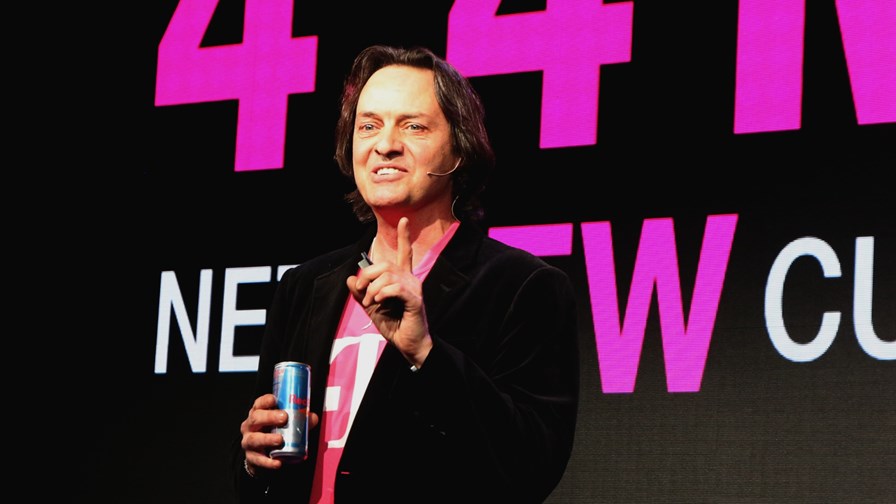
'New' T-Mobile CEO, John Legere © fanaticTRX (CC BY-SA 3.0)
- The exact shape of the Dish deal has been revealed
- T-Mobile sells Dish Sprint’s prepaid businesses
- It has seven years to use T-Mobile’s network while it builds its own
As expected, the $26 billion take-over of Sprint by T-Mobile has been given interim approval by the Justice department and the move is expected to create the third largest mobile telco in the US. That’s if it goes through. Several US States Attorneys General (those of Nebraska, Kansas, Ohio, Oklahoma and South Dakota) are still minded to block the deal, but confidence generally appears to be high that this deal is ‘done’ with the DoJ green light.
However, that approval was contingent, also as expected, on competition remedies involving Dish. Dish is a direct-broadcast satellite provider which also runs an over-the-top IPTV service, Sling TV. Dish wants to move further into terrestrial video by having its own facilities-based mobile network - this is its opportunity.
The proposal was that the two merging companies should essentially hatch an independent telco, made up of surplus bits and pieces left over from the merger. Thus endowed, the new competitor should be fit to replicate Sprint’s influence and return the market to a decently competitive state... one day.
To that end the deal with the DoJ mandates Sprint and T-Mobile to sell Sprint’s prepaid businesses (comprising Boost Mobile, Virgin Mobile, and Sprint prepaid) to Dish, and furnish Dish with a chunk of Sprint’s spectrum to run them on across what will become the T-Mobile network. That arrangement is to last 7 years to provide space for DISH to build out its own 5G network.
There is some scepticism that Dish will ever be able to build a 5G network that could hold its own against what will soon become the ‘big three’ - triopolies are very difficult things to hack away at, as challengers in Europe know only too well.
The proposition has a central contradiction too. It suggests that Dish will be able to create a national 5G network from scratch covering 70% of the US population by 2023, and before its competitors can rub it out in a market in which Sprint and T-Mobile - already sporting national (near enough) networks - felt themselves unable to prosper in alone. They argued that only by merging could they make a good fist of 5G. On that basis, Dish might look unlikely to provide the sort of competition to keep the big three in check.
On the other hand, while the history of four to three consolidations in Europe have been fairly clearly bad for consumers (prices always go up when these deals are consummated) there has been at least one notable success for what might be called curated competition.
In about 2011, the highly-protected French market was convulsed by the arrival of ‘Free’. It too was granted an interim network sharing agreement while it built out its own network (which it did) and it adopted highly disruptive tariffs to build market share. There was a furious response from the French incumbents as Free completely reworked the French market with mobile prices dropping like stones. The French market went from being one of the least competitive then, to one of the most competitive markets in Europe today.
So how certain is it that Sprint and T-Mobile will be able to fight through the remaining legal thickets to get their merger set in stone?
They’re not quite there yet. While the majority of FCC commissioners, predictably, have given the merger their blessing, the current settlement with DoJ has a 60 day public comment period and, should the deal’s detail not satisfy critics, the states might still come in and attempt to block if they are unconvinced that competition is being served.
Email Newsletters
Sign up to receive TelecomTV's top news and videos, plus exclusive subscriber-only content direct to your inbox.




